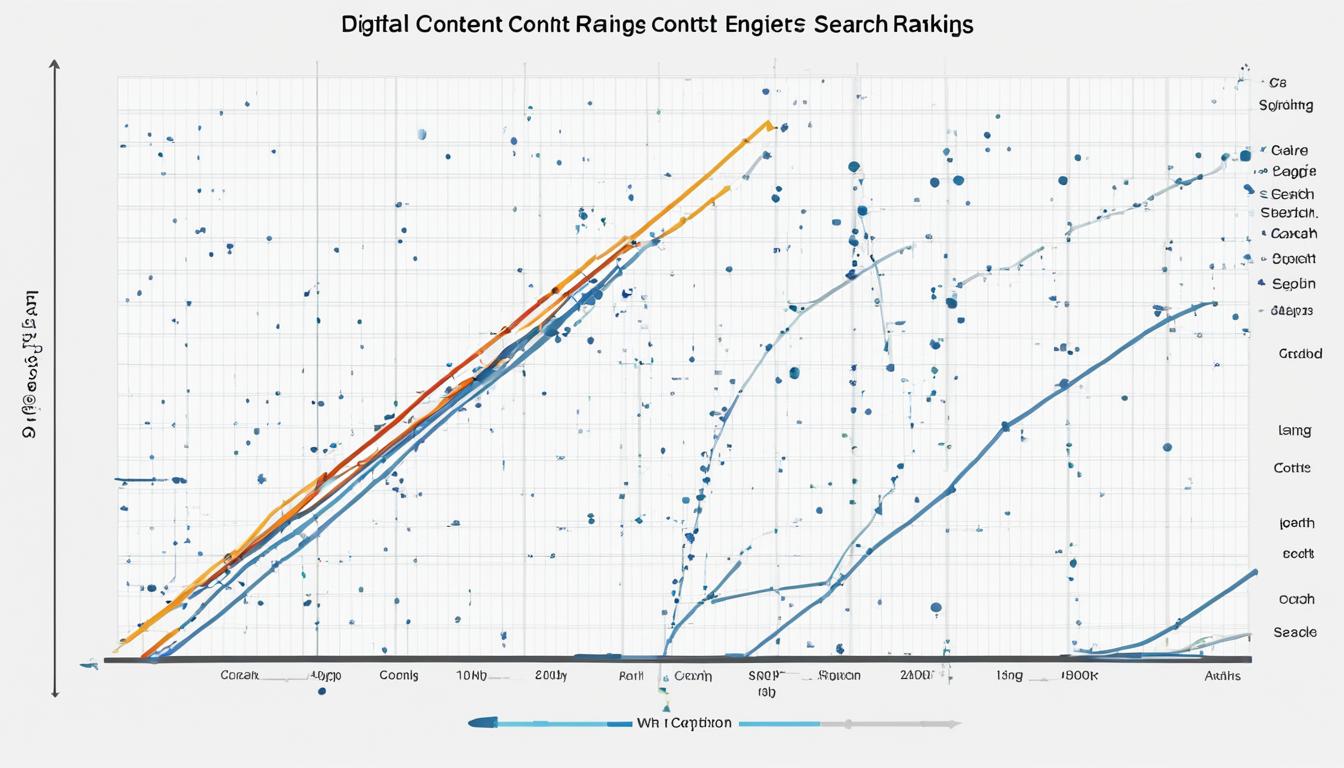Keyword optimization is a crucial element of SEO writing. When it comes to using keywords effectively in writing, it’s important to strike the right balance. According to experts, it is recommended to have a list of 5-10 keywords for a page. However, the key is to prioritize and strategically use these keywords.
The primary keyword should be the main focus of the content, while secondary keywords are complementary. Additional keywords can be related variations. In total, it is advisable to use 3-8 keywords in a piece of content.
Placement of keywords is also essential for optimizing your content. Keywords should be used in the meta description, meta title, article title, and within the first 200 words of the content. However, it’s crucial to use keywords naturally throughout the article and avoid overstuffing. By following these guidelines, you can optimize your content and improve search engine ranking.
Key Takeaways:
- Keyword optimization plays a vital role in SEO writing.
- Focus on a list of 5-10 keywords and prioritize their usage.
- Use the primary keyword as the main focus and secondary keywords as complementary.
- Strategically place keywords in the meta description, meta title, article title, and within the first 200 words of the content.
- Remember to use keywords naturally and avoid overstuffing.
Where to Use Keywords for SEO in Your Content Writing
When it comes to optimizing your content for search engine visibility, knowing where to strategically place keywords is crucial. By incorporating keywords in specific areas, you can improve your content’s chances of appearing in relevant search results. Here are the key locations where you should use keywords for SEO:
Meta Description
The meta description is a concise summary of your content that appears on search engine results pages. Including relevant keywords in the meta description can help search engines understand the topic of your content and encourage users to click through to your page.
Meta Title
The meta title is the name of your page that appears as the clickable link on search engine results pages. Incorporating keywords in the meta title can increase the visibility of your content and attract clicks from users who are searching for those keywords.
Article Title
Your article title should also incorporate keywords whenever possible. By including relevant keywords in the article title, you can improve the search engine optimization of your content and increase its visibility to potential readers.
First 200 Words
The first 200 words of your content hold significant importance for search engines. It is believed that search engines give more weight to the beginning of an article. Therefore, incorporating keywords within the first 200 words can help improve the ranking of your content in search results.
Natural Keyword Usage
While it is important to strategically place keywords, it is equally important to use them naturally throughout your article. Keyword stuffing can negatively impact the readability and user experience of your content. Instead, aim for a smooth and organic integration of keywords that complements the flow of your writing.
“Strategically placing keywords in key areas of your content can improve your content’s search engine visibility.”
By utilizing these key areas of keyword placement, you can optimize your content for search engines and improve its visibility to potential readers. Remember to use keywords naturally and provide valuable, informative content that resonates with your audience.
How to Choose Effective Keywords for Your Article

Choosing the right keywords is crucial for enhancing the discoverability of your article. To begin, review your content and identify key terms and phrases that are relevant to your topic. This will help you create a comprehensive keyword list. When brainstorming keywords, put yourself in the shoes of your target audience and consider the words or phrases they would use when searching for articles on your subject. Narrow down your keyword selection to ensure that they accurately reflect the content of your article.
Additionally, conducting audience research can provide valuable insights into the keywords your target readers are likely to use. Understanding their language and preferences can help you refine your keyword list further. Consider exploring long-tail keywords, which are longer and more specific phrases. These keywords can be effective for targeting a niche audience and increasing the visibility of your article among a specific group of readers.
To summarize, effectively choosing keywords involves a combination of analyzing your content, considering your target audience’s search behavior, and conducting audience research. By selecting relevant and targeted keywords, you can increase the chances of your article being discovered by the right readers.
| Advantages of Effective Keyword Selection | Disadvantages of Ineffective Keyword Selection |
|---|---|
|
|
Integrating Keywords Naturally into Your Writing

When it comes to creating high-quality content, integrating keywords naturally is essential. Overusing or “stuffing” keywords can make your content appear unnatural and spammy, which is not ideal for both readers and search engines. Instead, aim to incorporate keywords organically throughout the text, without drawing attention to their frequency.
One effective strategy is to utilize long-tail keywords. These are longer and more specific phrases that are likely to be used by your target audience when searching for information. By including long-tail keywords in your content, you can attract a niche readership and improve your chances of ranking higher in search engine results.
In addition to using long-tail keywords, it’s important to create topic-focused content. This means exhaustively covering a specific subject or addressing a particular problem. By diving deep into a topic and providing comprehensive information, you can naturally incorporate relevant keywords that resonate with both readers and search engines.
Remember, the key to successful keyword integration is to prioritize the needs of your audience. Focus on delivering valuable information and addressing their pain points, while seamlessly incorporating keywords that enhance the overall flow and readability of your content.
By following these strategies and creating content that seamlessly integrates keywords, you can enhance your SEO efforts while delivering valuable and engaging information to your readers.
Example Topic-Focused Content
Let’s say you’re writing an article about natural remedies for migraines. Instead of merely listing remedies, you could create a comprehensive guide that covers various aspects such as causes, symptoms, prevention tips, and lifestyle changes. By doing so, you not only provide valuable information to your readers but also naturally incorporate relevant keywords throughout the article.
Benefits of Natural Keyword Integration
- Enhances the readability and flow of your content
- Improves search engine visibility and ranking
- Attracts a targeted audience through long-tail keywords
- Establishes authority and expertise in your niche
- Delivers valuable information to your readers
By integrating keywords naturally into your writing and creating topic-focused content, you can optimize your content for search engines while providing valuable information to your audience.
Conclusion
Effective keyword usage is crucial in creating SEO-friendly content that improves search engine ranking. By strategically selecting and placing keywords throughout your content, such as in the meta description, meta title, article title, and within the first 200 words, you can optimize your content for search engines. However, it’s important to use keywords naturally and avoid overstuffing them. Quality writing that incorporates keywords in a way that enhances readability and provides value to readers is essential for attracting the right audience.
Remember to prioritize your keywords and focus on creating high-quality, SEO-friendly content that engages and informs your readers. By following these practices, you can increase your chances of ranking higher in search engine results and reaching a wider audience. Investing time and effort into effective keyword usage and quality writing is a key step towards improving your website’s visibility and overall online presence.
In conclusion, to achieve successful search engine optimization, it’s important to understand the importance of effective keyword usage. By implementing a keyword research strategy, selecting relevant keywords, and naturally integrating them into your content, you can improve your website’s search engine ranking and attract organic traffic. Remember to prioritize quality writing and provide valuable information to your readers, as search engines are increasingly focused on rewarding high-quality, user-centric content. With the right approach and consistent effort, you can create SEO-friendly content that drives organic traffic and boosts your online visibility.










